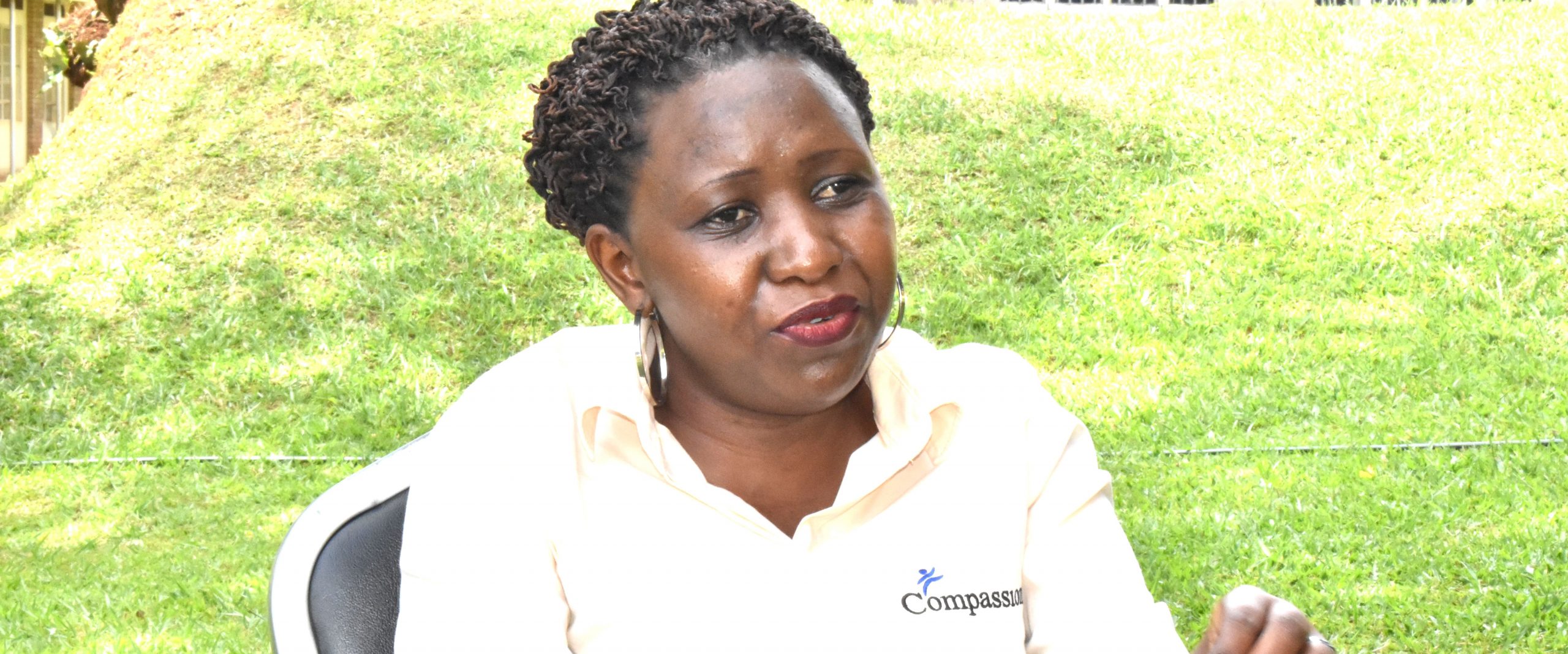By Dalton Mujuni, Yasir J. Kasango and Ivan Tsebeni
Prim Kesande Tumuramye, a Uganda Christian University (UCU) alumna and former UCU employee, was recently elevated to the position of Communications Specialist for Compassion International Africa.
Compassion International is a Christian charity organization that is committed to rendering support to vulnerable children in Africa, Asia, Latin America and the Caribbean. Prim’s new job includes laying strategies and supporting others in the communication processes, as well as supporting the African countries that they serve. Uganda, Rwanda, Ethiopia, Kenya and Tanzania are among these countries.
Prim said that her experience at UCU as a student and later a staff member better enabled her to strongly espouse Christian values that have been pivotal in her profession.
“I think it would have been a hazardous if I had attended a liberal public university given that I was coming to the city for the first time,” Prim, a native of the western region of Kabale, said. “UCU gave me a safe landing and grounded me with Christian Values.”
Prim, 37, married and with children, has a career path that was deliberate but often rocky.
Prim is the only child of a strict mother who gave up a teaching job to conduct a small business yielding more money. She recalled how reading books took the place of being with other children in the household and how a charitable couple graced her with school fees. She attended Mother care Primary School, and Kigezi High School for elementary and High school respectively.
Mostly working from home during Uganda’s covid-related lockdown, Prim took a break in July to discuss her career moves within Compassion International, starting in 2006.
After completing her UCU final semester examinations in April 2006, Prim sought an opportunity for Child Development worker in partnership with Compassion International. Her mother felt the application would be futile since Prim did not yet have her university diploma in hand, but Prim persevered.
Robert Mugabe, the then Child Development project director in Kabale, gave her transport to the interview in Rukungiri District in Western Uganda as well as arrangements for her to spend a night with some relatives there. One of the interview panelists convinced the others that since Prim was educated at UCU, the transcript would be forthcoming.
“If this young lady says she is from UCU and she is scheduled to graduate on August 30, 2006, you can take her at her word,” said the panelist, Canon Sam Ruharo. Prim started working in August before her graduation.
In 2007, she was promoted to Project Director of the Child Development Center (CDC). She worked for two years as the Project Director.
In 2009, UCU Bishop Barham Constituent College advertised that they needed a suitable candidate with work experience, aged 35 years and above to work as a public relations officer. Despite Prim’s young age at the time, she applied and was hired.
Her Job at UCU Bishop Barham was her turning point in the mass communication profession since from the onset, her interest had been law.
“I had studied Mass communication by default since my passion for law had died with the inconsistencies that surrounded my admission,” Prim said. “I had been so depressed for being kicked out of the Law course and never loved Mass communication but I picked myself up when I started practicing Mass communication at UCU.”
In 2010, when the UCU main campus advertised the vacancy of Assistant Public Relations Officer, Prim got the job. Prim’s luck followed her unceasingly, in 2013, the then Public Relations Officer of UCU transitioned into a government employee, leaving a vacuum that she luckily filled. She played the acting Public Relations Officer role so well for 11 months and when the university advertised the office, there was no better person to fill the space than her.
She worked as UCU public relations officer until December 2017. Prim was good at multi-tasking, while working at UCU she was a lecturer for the Faculty of Journalism, Media and communication. She also wrote a column for the Observer News Daily.
In December 2017, she sought a new experience of work at Compassion International Uganda as the Public Relations Specialist. In 2021, she was elevated to Communication Specialist, Compassion International Africa.
Prim’s advice to others pursuing jobs is this: “I went into this process without fear for failing because I know failure is an opportunity to learn – not the end of life. Luckily the interviews were conducted virtually leaving room for me to enhance my confidence. There were many people but only by the Grace of God I made it to the top in Africa.”



